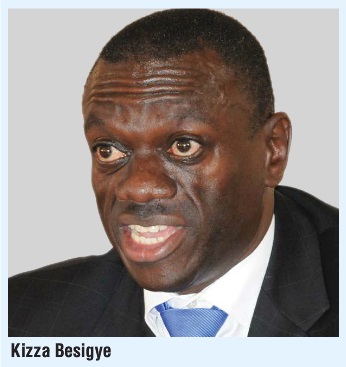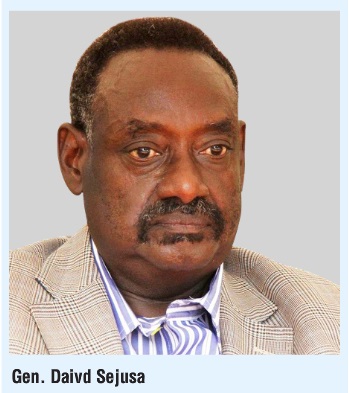
Critics suspect that the ultimate objective is to use these allegations to give a new lease of life to what has been criticised as fabricated treason charges that President Museveni’s four-time presidential challenger, Kiiza Besigye, who has been under detention for over a month, is facing.
It is not the first time Besigye is facing treasonous charges. In 2006, the Constitutional Court dismissed similar charges against him. At the time he was accused of allegedly heading a group called People’s Redemption Army (PRA).
The constitutional Court said his trial in a military court was unconstitutional. Several legal experts have also said the current charges stand no chance before any competent court and they say Besigye has been locked up in Luzira Prison without being tried because the state knows the charges against him are weak.
When he was finally moved from military detention to detention in his home in Luzira, Kabaziguraka told people who visited him that security agencies are already connecting the suspects and their alleged subversive activities to Besigye and ex-coordinator of intelligence services, David Sejusa.
However, while the mainstream opposition has been the centre of attention as the main threat to Museveni’s government, other usually well informed commentators tell The Independent that the current operations are similar to a spate of attacks on security installations and the subsequent arrests that occurred in in 2012.
The most pronounced of these attacks was a botched attack on the Mbuya military barracks. While the full extent of the security threats was hushed, an intelligence network coordinated by police chief, Kale Kayihura, concluded that the then coordinator of intelligence services, David Sejusa, had been gathering Intel on security installations targeting armories with intentions of recruiting returnees from security operations abroad like in Iraq plotting to overthrow the government.
Intelligence sources claim that Sejusa’s activities were exposed by a family member, who has since been rewarded with promotions in the army. However, the idea that such a mission had been hatched right at the heart of Uganda’s security establishment has remained a major concern.
Sources within the security establishment indicate that after these incidents, even the security of the first family was further fortified because apparently, apart from the security installations, they were the other targets.

Intelligence questioned
However, skeptics about this intelligence say that if Sejusa’s activities had been that serious, Museveni would not have been “forgiven” him easily. After these incidents, Sejusa escaped to exile and while in London, intelligence reports indicated that he attempted to reach out to countries like Sudan for possible assistance in an effort to overthrow the government.
However, Sejusa would later return after President Museveni reached out to him in London with a reconciliatory hand. No charges were preferred against him when he returned but the army refused to retire him as he had been reportedly promised.
But while Sejusa was never charged over these incidents, six people who were arrested over the same, remain under military detention despite several efforts to have them freed.
President Museveni, who usually gives audience to relatives of suspects like that, has on several occasions snubbed the parents of some of the detainees. At one point, two of the parents thought they would meet the president and plead for their sons when they were invited to attend a meeting for a farmers group, where the chief guest was the president, but they were unable.
On another occasion early this year, the two parents also thought they would meet the President when they were invited for a national event, instead, they were only given medals and never got the chance to meet the president.
A source close to the family of one of the suspects intimated to The Independent that there was a push to make the suspects admit that they were involved in `subversive activities’ in exchange for lenient punishments but they declined the offer. Their fate is now unclear since the court martial, which is supposed to decide their case doesn’t have a chairman. Major General, Levy Karuhanga, who was heading it passed away early this year.
The attacks in Gulu are particularly disturbing because this was the epicenter of the two-decade long armed insurrection of Joseph Kony’s Lord’s Resistance Army in which thousands of civilians were killed. The arrest of respected members of these communities, including Col. Odwee, Capt. Ojara, and Oola touches a raw nerve with myriad implications on security in the area.
Simon Mulongo, a security expert and former member of Parliament’s Defence and Internal Affairs committee told The Independent that the authorities need to go beyond reassuring the public and find ways of dealing with these threats decisively whether they are serious or not.
“Our intelligence needs to infiltrate these groups,” Mulongo said.
 The Independent Uganda: You get the Truth we Pay the Price
The Independent Uganda: You get the Truth we Pay the Price





